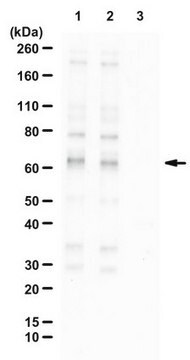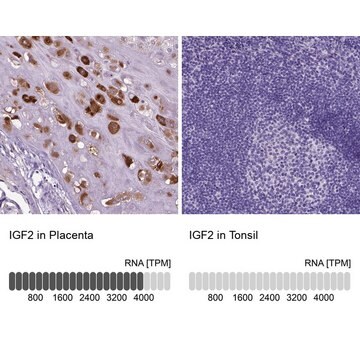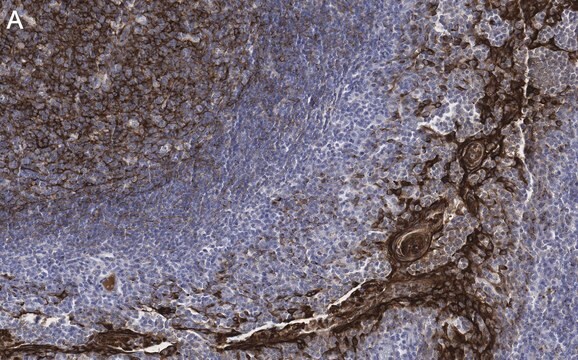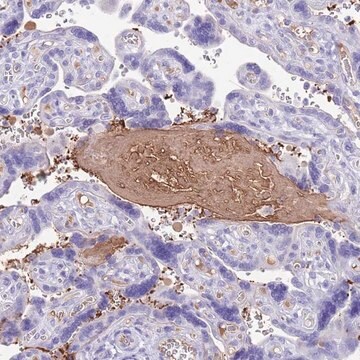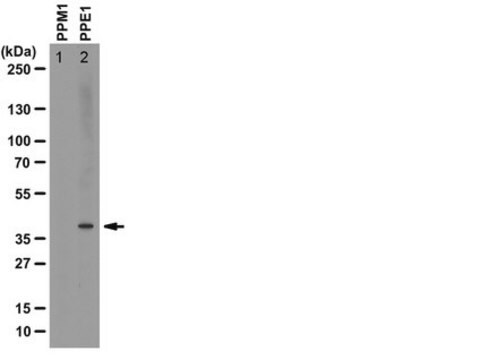Recommended Products
biological source
human
Quality Level
conjugate
unconjugated
antibody form
purified antibody
antibody product type
primary antibodies
clone
278-2, monoclonal
mol wt
calculated mol wt 27.95 kDa
observed mol wt ~37 kDa
purified by
using protein G
species reactivity
human
packaging
antibody small pack of 100 μg
technique(s)
flow cytometry: suitable
western blot: suitable
isotype
IgG1κ
epitope sequence
Unknown
Protein ID accession no.
UniProt accession no.
shipped in
2-8°C
target post-translational modification
unmodified
Gene Information
human ... fgf23> FGF23(8074)
Related Categories
General description
Specificity
Immunogen
Application
Evaluated by Western Blotting in Human brain tissue lysates.
Western Blotting Analysis: A 1:1,000 dilution of this antibody detected FGF23 in Human brain tissue lysates.
Tested Applications:
Flow Cytometry Analysis (FC): 1 μg of this antibody detected Fibroblast growth factor 23 (FGF23) in one million Jurkat cells pretreated with Brefeldin A (1 μg/mL 4 h).
Physical form
Storage and Stability
Other Notes
Disclaimer
Not finding the right product?
Try our Product Selector Tool.
Storage Class
12 - Non Combustible Liquids
wgk_germany
WGK 1
flash_point_f
Not applicable
flash_point_c
Not applicable
Certificates of Analysis (COA)
Search for Certificates of Analysis (COA) by entering the products Lot/Batch Number. Lot and Batch Numbers can be found on a product’s label following the words ‘Lot’ or ‘Batch’.
Already Own This Product?
Find documentation for the products that you have recently purchased in the Document Library.
Our team of scientists has experience in all areas of research including Life Science, Material Science, Chemical Synthesis, Chromatography, Analytical and many others.
Contact Technical Service
